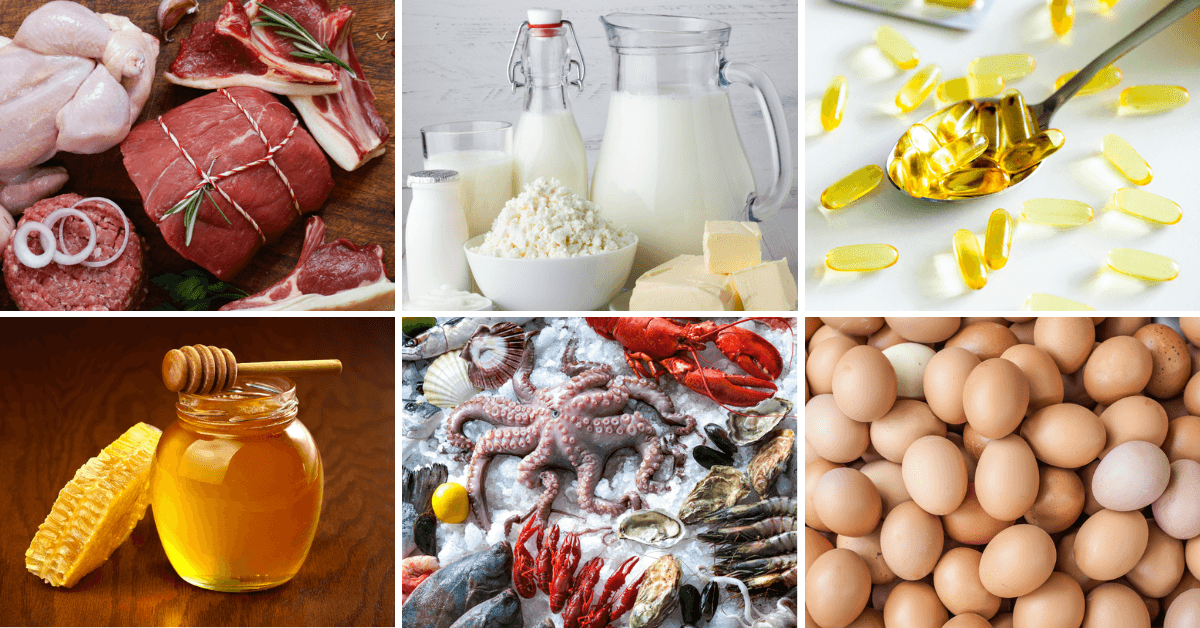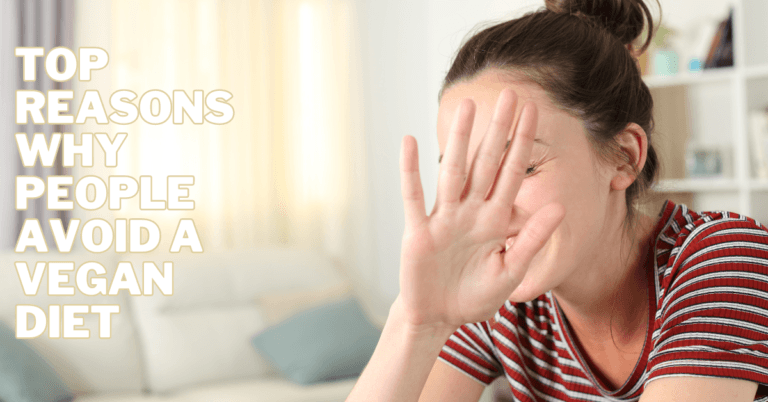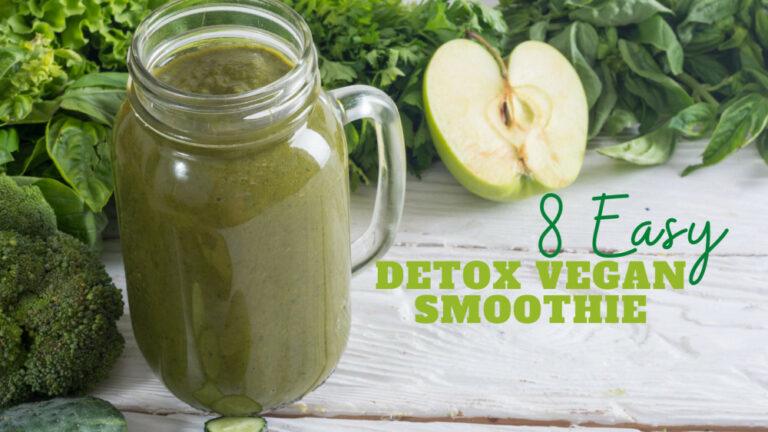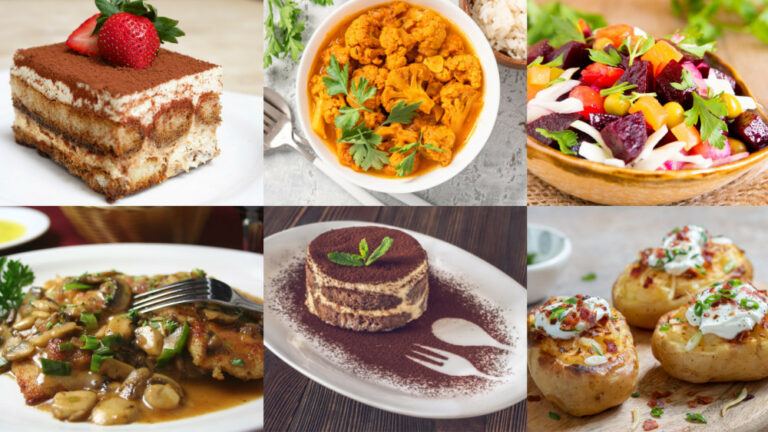What Vegans Cannot Eat
What Vegans Cannot Eat
Embracing a vegan lifestyle is a conscious choice beyond dietary preferences; it's a commitment to ethical, environmental, and health principles.
In the world of veganism, the choices surrounding what to eat are shaped by a profound respect for animals, a dedication to sustainability, and a pursuit of personal well-being.
This article delves into the essentials of ‘What Vegans Cannot Eat,' shedding light on the strictly off-limits foods and ingredients for those who have adopted this plant-based way of life.
From animal-derived products to surprising hidden ingredients, we'll explore the boundaries of a vegan diet and help you navigate the path towards a more compassionate and eco-conscious culinary journey.
Understanding Vegan Dietary Boundaries: What Vegans Cannot Eat.
In a world where dietary choices have the power to shape not only individual health but also global sustainability, veganism stands out as a lifestyle steeped in compassion, ethics, and environmental consciousness.
For those who have embraced the vegan way of life, every meal reflects these principles, rooted in the belief that one's dietary choices can make a profound difference.
Vegans exclude all animal-derived products from their diet for ethical, environmental, and health reasons. Here's a detailed list of what vegans cannot eat:
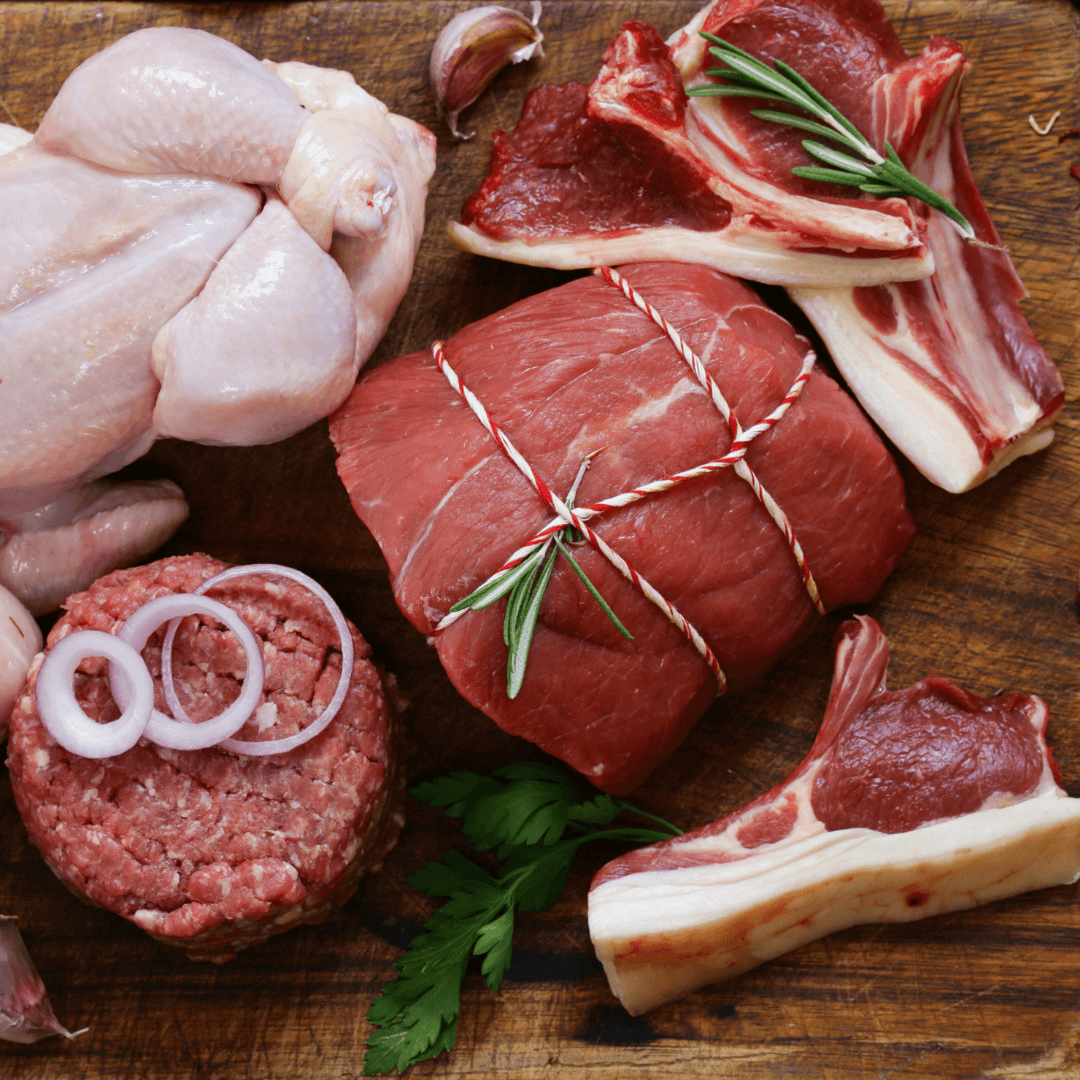
1. Meat
Vegans abstain from consuming meat from land and sea as a fundamental tenet of their lifestyle.
This exclusion encompasses popular choices like beef, pork, poultry, lamb, and game meats, all procured through animal slaughter.
While avoiding these conventional meats is well-known, vegans steer clear of processed meat products, often in omnivorous diets.
This means saying ‘no' to sausages, hot dogs, and deli slices, typically laden with animal-derived ingredients and additives.
The decision to eliminate meat from their diets is deeply rooted in the ethical, environmental, and health concerns that drive veganism.
For ethical vegans, it's a stand against animal suffering and the meat industry's treatment of animals.
Environmentally, it's a choice to reduce the carbon footprint associated with animal agriculture, a major contributor to climate change.
Moreover, vegans aim to lower their chance of developing specific diseases like cancer and heart disease, which are frequently linked to diets high in animal products.
By eliminating meat in all its forms, vegans make a statement about what's on their plate and the world they wish to see – one that is more compassionate, sustainable, and healthy.
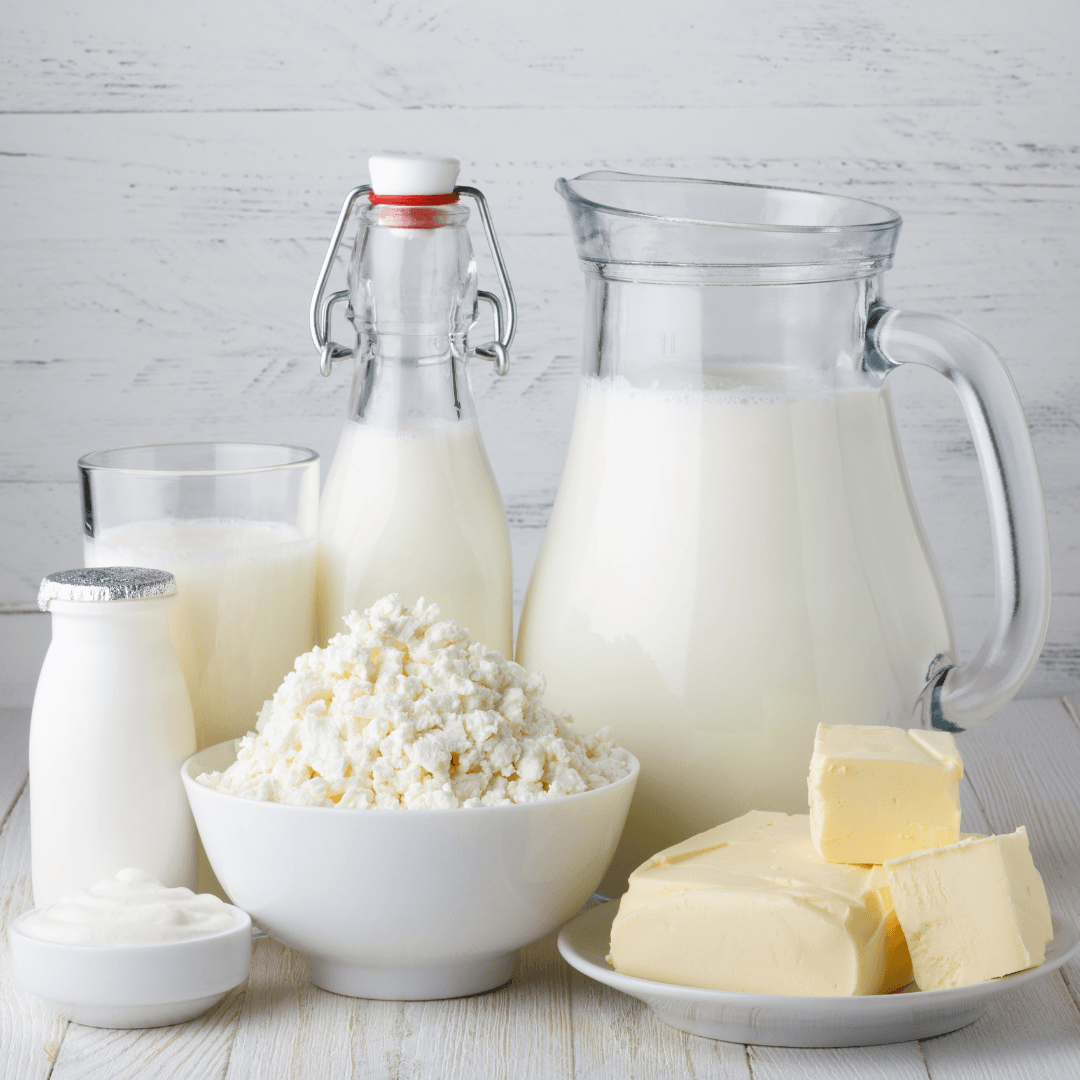
2. Dairy Products
Dairy products, including milk, cheese, yogurt, and butter, hold a significant place in the diets of many, but they are unequivocally excluded from the vegan plate.
Although cherished by some for their taste and versatility, these items are produced from animal milk, predominantly sourced from cows.
The crux lies in the inherent ethical concerns and animal welfare issues associated with the dairy industry.
Dairy cows endure cycles of pregnancy, milking, and separation from their calves, leading to a life of stress and confinement.
Even lactose-free dairy products, often marketed as a solution for those with lactose intolerance, share the same origin and are therefore not embraced by vegans.
The decision to abstain from dairy is closely tied to the core principles of veganism, which advocate for a lifestyle marked by compassion and non-exploitation of animals.
Vegans cannot eat dairy products, as their commitment to compassion, environmental sustainability, and personal health drives them to seek plant-based alternatives.
Regarding the environment, the dairy business significantly contributes to deforestation and greenhouse gas emissions.
This decision is also motivated by health concerns because dairy intake has been connected to several health problems, such as lactose intolerance and an increased risk of developing certain diseases.
By eschewing dairy products, vegans uphold a commitment to ethics, environmental sustainability, and personal well-being while seeking plant-based alternatives that are both humane and nutritious.
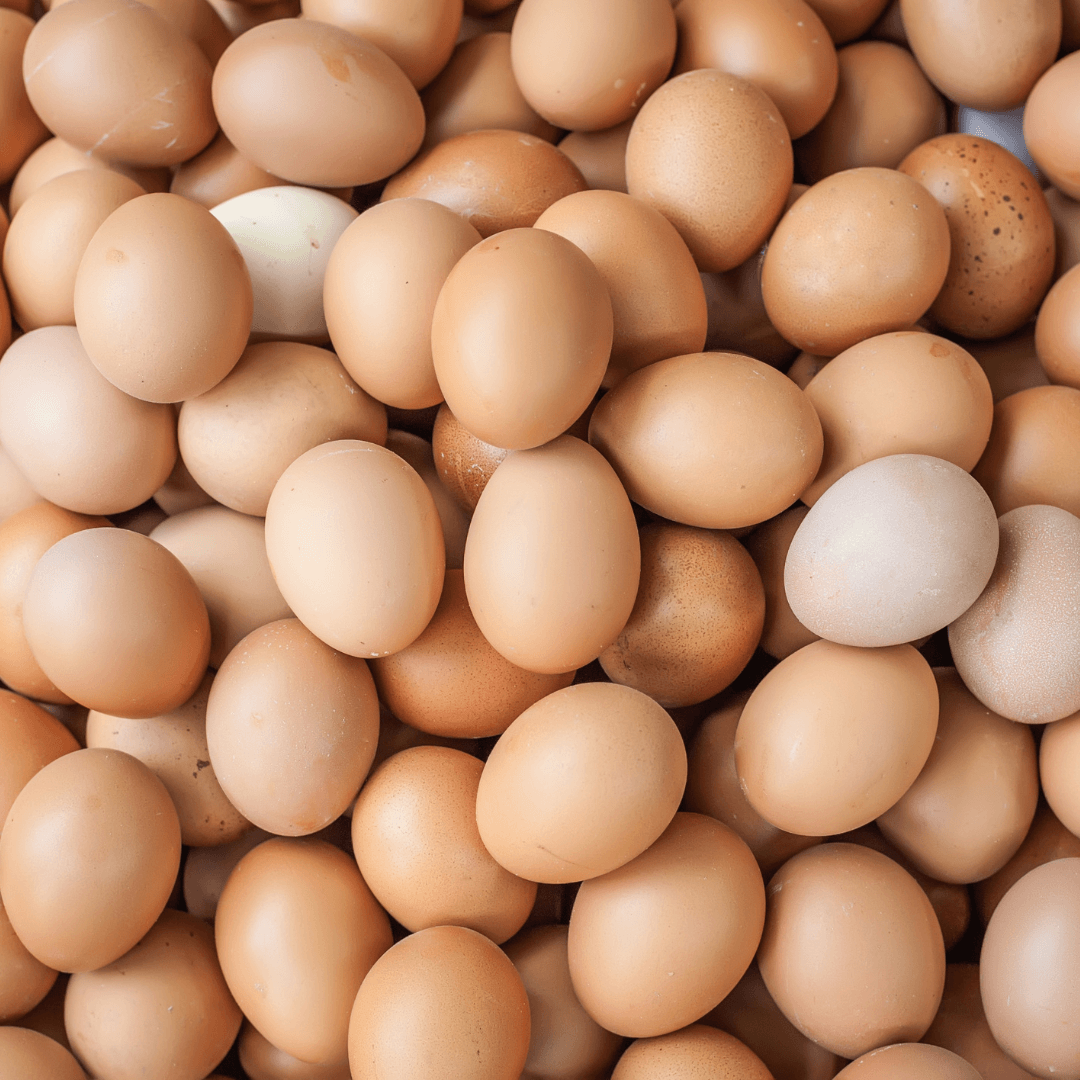
3. Eggs
Eggs, once a breakfast staple and versatile ingredient, are off the menu for vegans. This prohibition encompasses eggs from chickens and those of other birds, aligning with the core principles of veganism, which revolve around minimizing harm and exploitation of animals.
The decision to exclude eggs is multifaceted. Ethically, the egg industry is fraught with issues such as confined and inhumane living conditions for hens and the culling of male chicks, which goes against the vegan principle of compassion.
Beyond this, the health concerns associated with egg consumption, including high cholesterol levels and potential disease risks, further support the choice to abstain.
Additionally, from an environmental standpoint, the resources required to sustain large-scale egg production, such as feed, land, and water, contribute to environmental degradation.
Even seemingly benign practices like backyard chicken-keeping can inadvertently perpetuate harmful industry norms.
Thus, vegans embrace egg alternatives like flaxseed and aquafaba in cooking and baking, allowing them to create delicious, animal-friendly dishes while adhering to their commitment to a more ethical, sustainable, and health-conscious lifestyle.
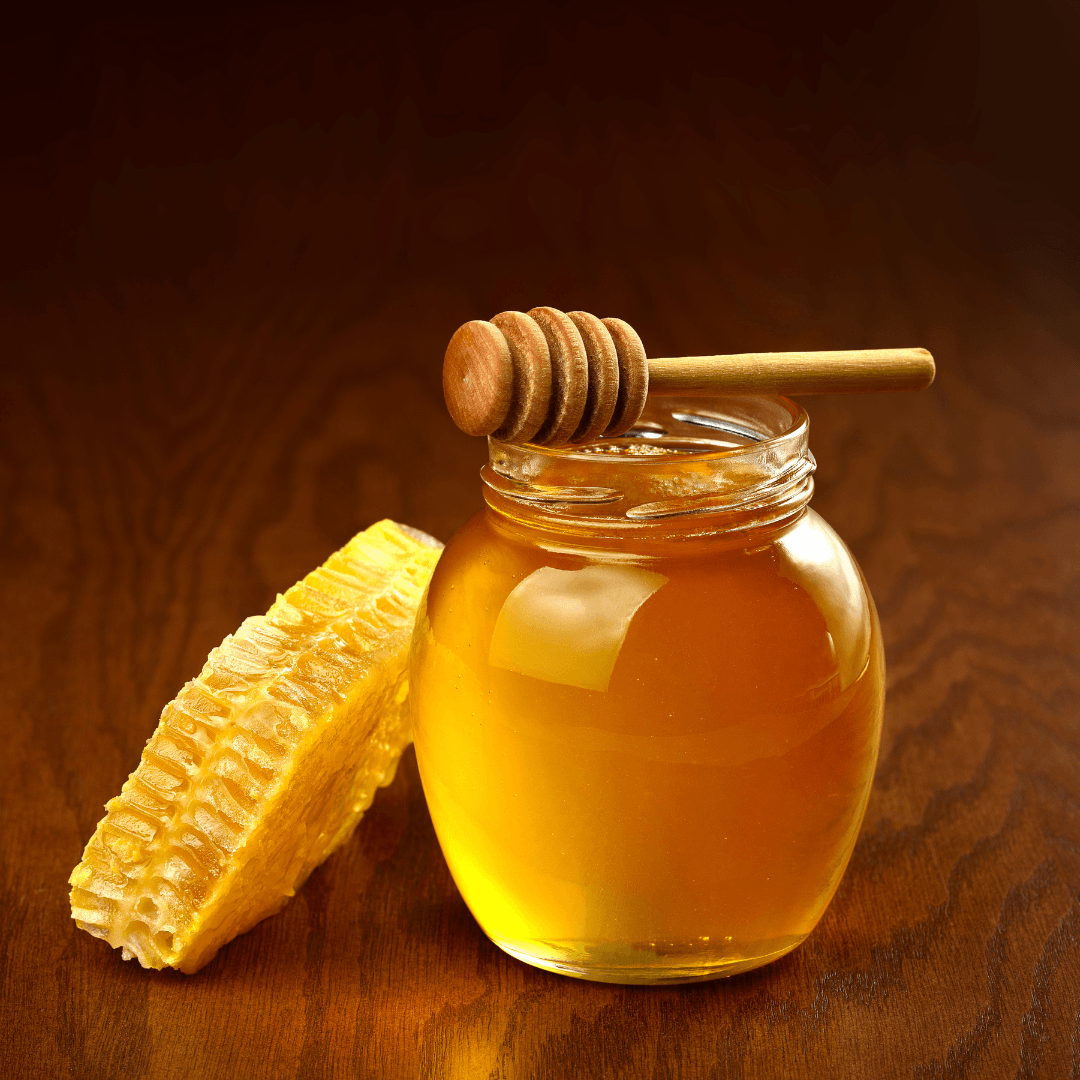
4. Honey
Honey, often regarded as nature's sweet nectar, is notably absent from the vegan pantry. This omission stems from the profound respect for the well-being of bees, who work diligently to produce this golden elixir.
While bees are integral to the pollination of plants and the growth of various fruits and vegetables, the honey industry has raised concerns about ethical treatment and exploitation.
Commercial beekeeping practices often involve the extraction of honey at the expense of bees' food stores, replacing it with sugar water, which can be detrimental to their health.
The welfare of these essential pollinators is a paramount concern for vegans, aligning with their broader commitment to compassion for all sentient beings.
As the world grapples with declining bee populations and the implications for global food systems, vegans stand in solidarity with these vital creatures.
In place of honey, they seek out alternatives like maple syrup, agave nectar, or other plant-based sweeteners, offering a cruelty-free approach to satisfying their sweet cravings while remaining dedicated to the principles of veganism — that of ethical, eco-conscious living and harmonious coexistence with the animal kingdom.

5. Gelatin
Gelatin, a common ingredient in various food and non-food products, is unequivocally excluded from the vegan diet due to its origin.
It is derived from animal collagen, typically sourced from cows' or pigs' bones, skin, and connective tissues.
The process involves boiling these animal parts, extracting the collagen, and processing it into a gel-like substance.
While gelatin is a versatile thickening agent and texturizer, it raises serious ethical and health concerns for vegans.
From an ethical standpoint, the production of gelatin involves the exploitation and often inhumane treatment of animals, directly contradicting the core principles of veganism.
The health implications are also significant, as gelatin has limited nutritional value and has been linked to digestive issues in some individuals.
Vegans opt for plant-based alternatives like agar-agar or pectin to achieve similar textures and effects in cooking and baking.
The deliberate exclusion of gelatin from the vegan diet aligns with the fundamental commitment to minimizing animal harm, upholding ethical values, and promoting a more compassionate and sustainable way of life.
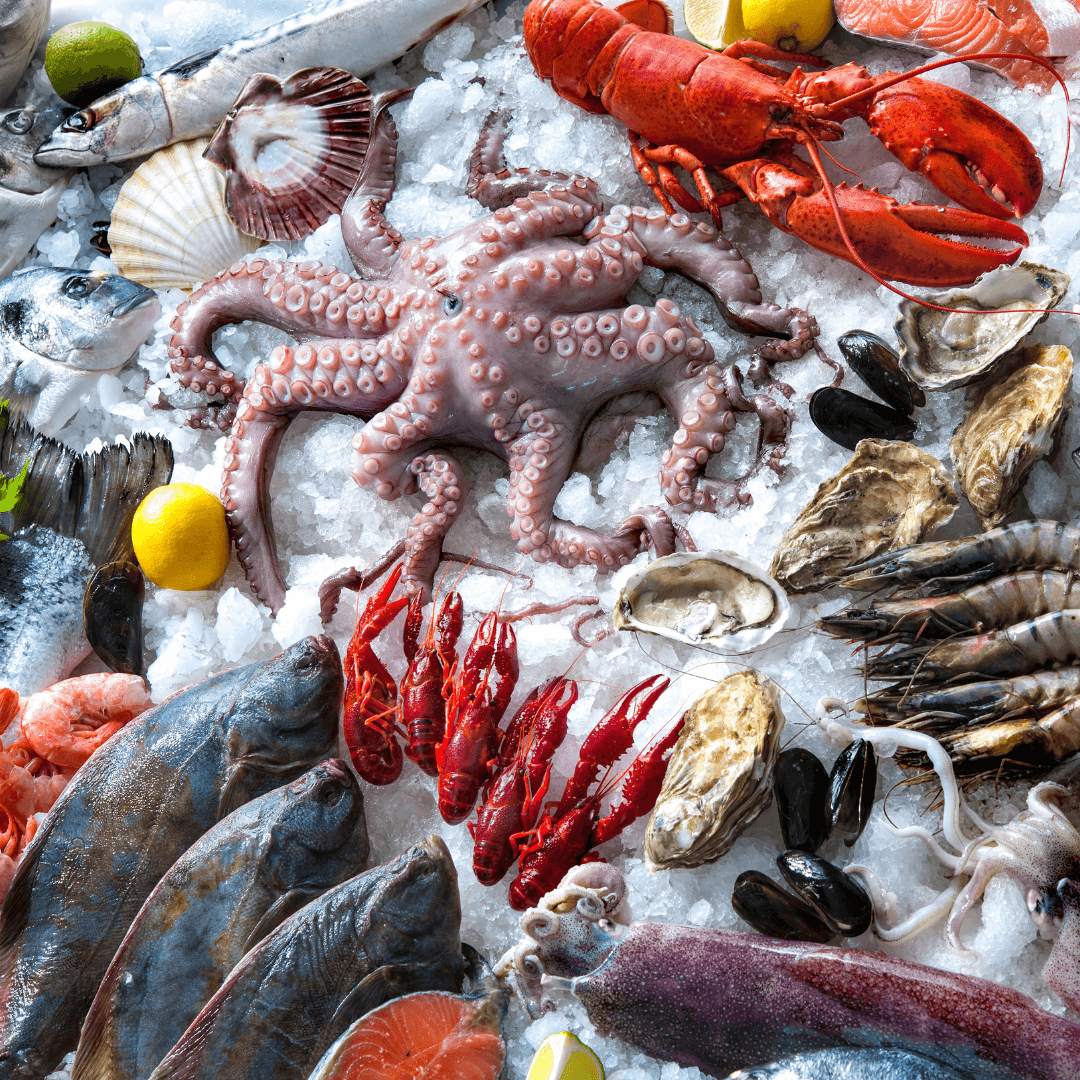
6. Fish And Seafood
Fish and seafood, despite their popularity in various cuisines, are resolutely omitted from the vegan diet.
This exclusion extends to all marine life, including salmon, tuna, shrimp, and crab species. At the heart of this choice lies the commitment to animal welfare, sustainability, and ethical consumption.
While seafood is often touted as a healthier protein source, commercial fishing practices have increased overfishing, bycatch, and severe depletion of marine ecosystems.
These practices lead to the loss of countless non-target species and the degradation of our oceans.
Moreover, aquaculture, or fish farming, is fraught with concerns such as overcrowding, disease outbreaks, and the use of antibiotics.
For ethical vegans, consuming fish and seafood is a contradiction to the fundamental principles of veganism, which emphasize compassion and non-exploitation of animals.
By refraining from fish and seafood, vegans also send a strong message about the urgent need for sustainable and responsible fishing practices, promoting plant-based alternatives and emphasizing the importance of ocean conservation.
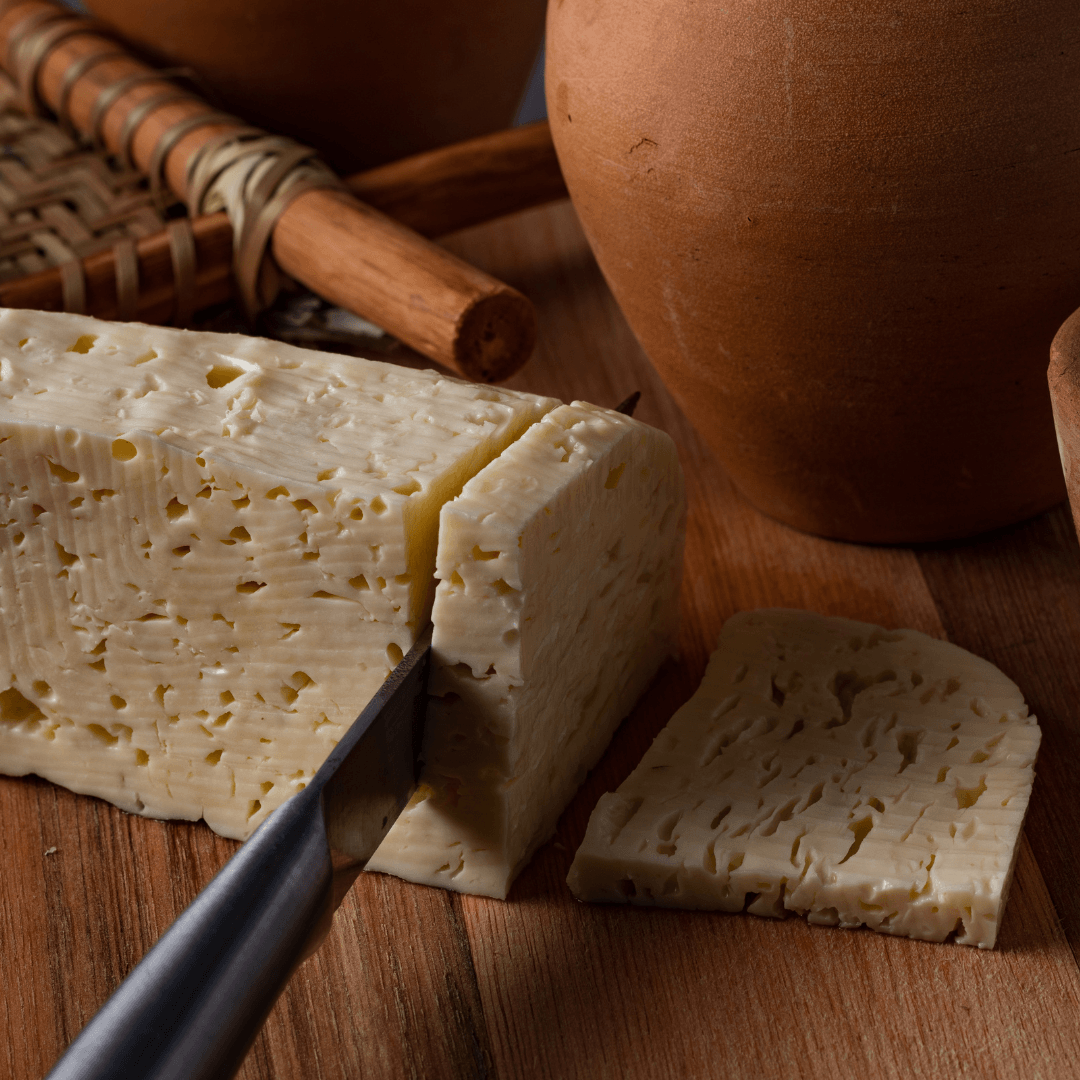
7. Rennet
Rennet, a crucial component in cheese production, is obtained from the stomach lining of young calves, often sourced from the veal industry.
Vegans cannot eat traditional cheese made with animal-derived rennet, so they turn to rennet-free or plant-based alternatives to enjoy their favourite cheesy flavours while remaining true to their ethical principles.
This practice stands as a significant ethical concern for vegans, as it involves the exploitation and eventual slaughter of these calves.
The extraction of rennet is a byproduct of this process, which directly contradicts the core tenets of veganism centred around compassion and the avoidance of animal exploitation.
While traditional cheese-making relies heavily on animal-derived rennet, today's food industry offers a range of rennet-free or plant-based alternatives to create delectable vegan cheeses.
These alternatives are derived from sources like microbial enzymes, plant extracts, or fermentation processes, providing a cruelty-free solution for vegans who seek the flavours and textures of cheese without contributing to the harm young animals face.
By choosing rennet-free or plant-based cheese, vegans take a principled stand against animal exploitation, advocating for more compassionate and ethical practices in food production while still savouring the delights of cheesy dishes.

8. Whey Protein
Whey protein, a byproduct of the cheese-making process, is a prevalent ingredient in various protein supplements and processed foods.
However, it is unequivocally excluded from the vegan diet due to its origin. Whey is obtained by separating the liquid part of milk during cheese production, and this separation process involves the exploitation of dairy cows, aligning with the ethical concerns that drive veganism.
The dairy industry often subjects cows to conditions prioritizing high milk production at the expense of their well-being, ultimately leading to premature slaughter.
This ethical dilemma is why vegans opt for plant-based protein sources. These sources, which can include options like pea protein, soy protein, and hemp protein, not only align with the principles of cruelty-free living but also offer numerous health benefits.
By choosing plant-based proteins, vegans embrace a sustainable, ethical, and health-conscious alternative while making a stand against the animal exploitation that underlies the production of whey protein.
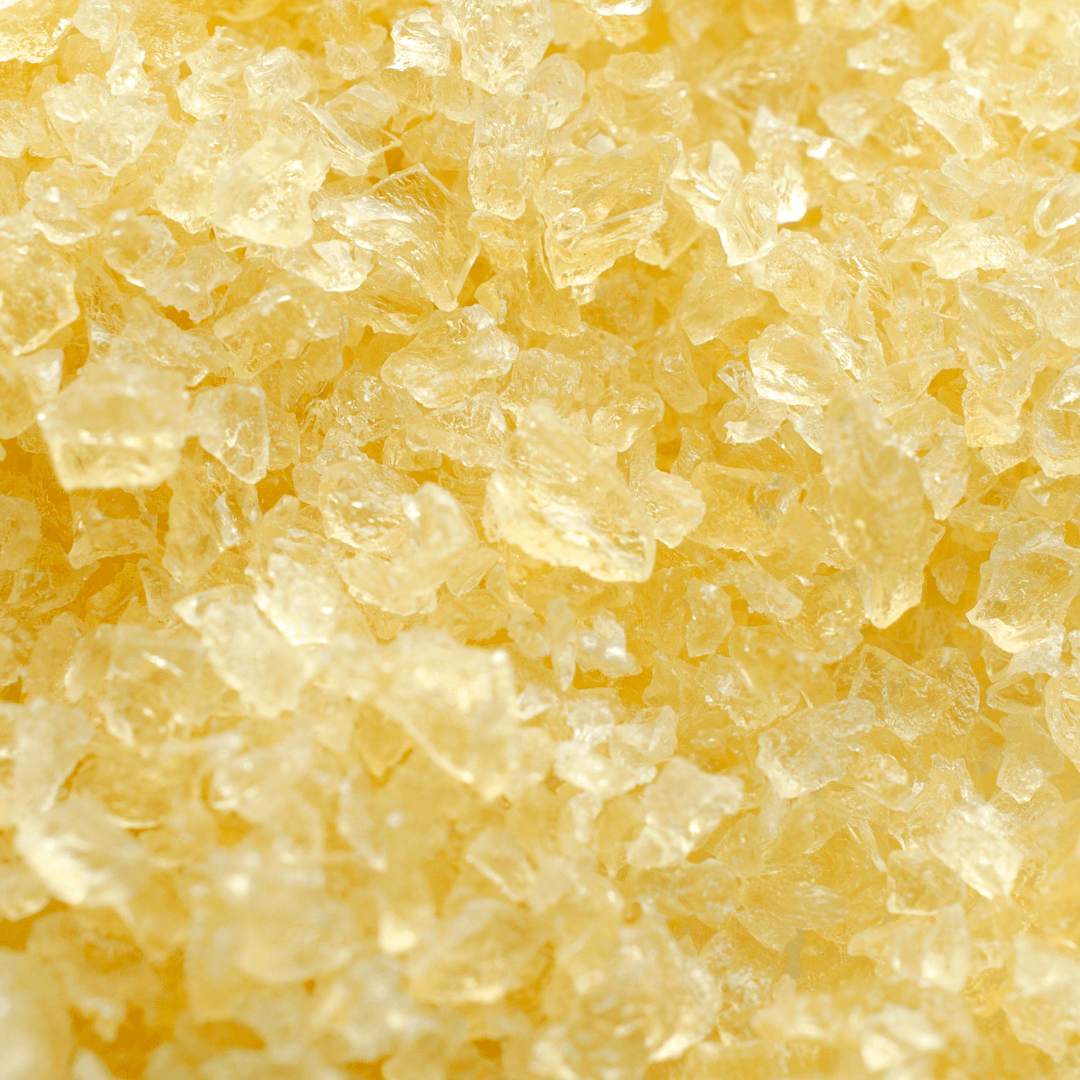
9. Isinglass
Isinglass, a substance derived from fish, is traditionally used in the beer and wine-making process for its ability to clarify and remove impurities from the final product.
However, this practice poses a significant dilemma for vegans. Using isinglass involves sourcing the swim bladders of fish, particularly sturgeon and other species.
This process is incompatible with the vegan commitment to animal welfare and non-exploitation, as it contributes to the fishing industry's environmental impact and raises ethical concerns about animal suffering.
The good news for vegans and conscientious consumers is that vegan alternatives are readily available.
Breweries and winemakers have recognized the need for cruelty-free and sustainable production methods, leading to the development of plant-based fining agents such as bentonite, activated charcoal, and pea protein.
Vegans cannot eat beverages clarified with animal-derived substances like isinglass; instead, they opt for options that align with their principles of compassion and sustainability.
These alternatives achieve the same clarifying effects without using animal-derived substances, aligning with compassion and eco-conscious living principles at the heart of veganism.
By choosing beverages that use vegan-friendly fining agents, consumers can enjoy their favorite drinks without compromising their values, supporting more ethical and sustainable practices in the alcohol industry.

10. Carmine
Carmine is a vibrant red colourant often used in food and cosmetics. It is made from the crushed carcasses of female cochineal insects.
This practice is fundamentally at odds with veganism, as it directly involves the exploitation and killing of these small insects.
The cochineal insects are reared, collected, and then subjected to a process that results in their death, all in the name of producing the vibrant red dye.
The use of carmine in both food and cosmetics presents a clear ethical dilemma for vegans, as it runs counter to the principles of cruelty-free living.
The pursuit of ethical alternatives to carmine has led to the development of various plant-based colourants, offering the same striking hues without reliance on insect-derived ingredients.
By choosing carmine-free products and advocating for more transparent labelling in the food and cosmetic industries, vegans align their lifestyle with compassion, non-exploitation, and sustainability while driving positive changes in product formulations and manufacturing processes.

11. Omega-3 Supplements From Fish Oil
Omega-3 supplements, often associated with promoting heart and brain health, are widely available.
However, those derived from fish oil are unequivocally excluded from the vegan diet due to their animal origin.
Fish oil supplements are sourced from the flesh of various marine species, raising concerns about overfishing and the potential environmental consequences.
Ethically, extracting fish oil involves the fishing industry's exploitation and often unsustainable practices.
Moreover, the capsules may contain other fish-derived ingredients that conflict with the principles of veganism.
Conversely, vegans rely on plant-based sources of Omega-3 fatty acids, like walnuts, chia seeds, hemp seeds, and flaxseed oil.
Algae-based Omega-3 supplements are also a popular choice, as they offer a direct and cruelty-free source of this essential nutrient.
Algae supplements, in particular, provide the same health benefits as fish-derived Omega-3s, making them an environmentally responsible and ethically sound alternative for those committed to a vegan lifestyle.
Vegans maintain their dedication to ethical values, environmental sustainability, and personal well-being by opting for plant-based sources while ensuring a diet that aligns with their core principles.
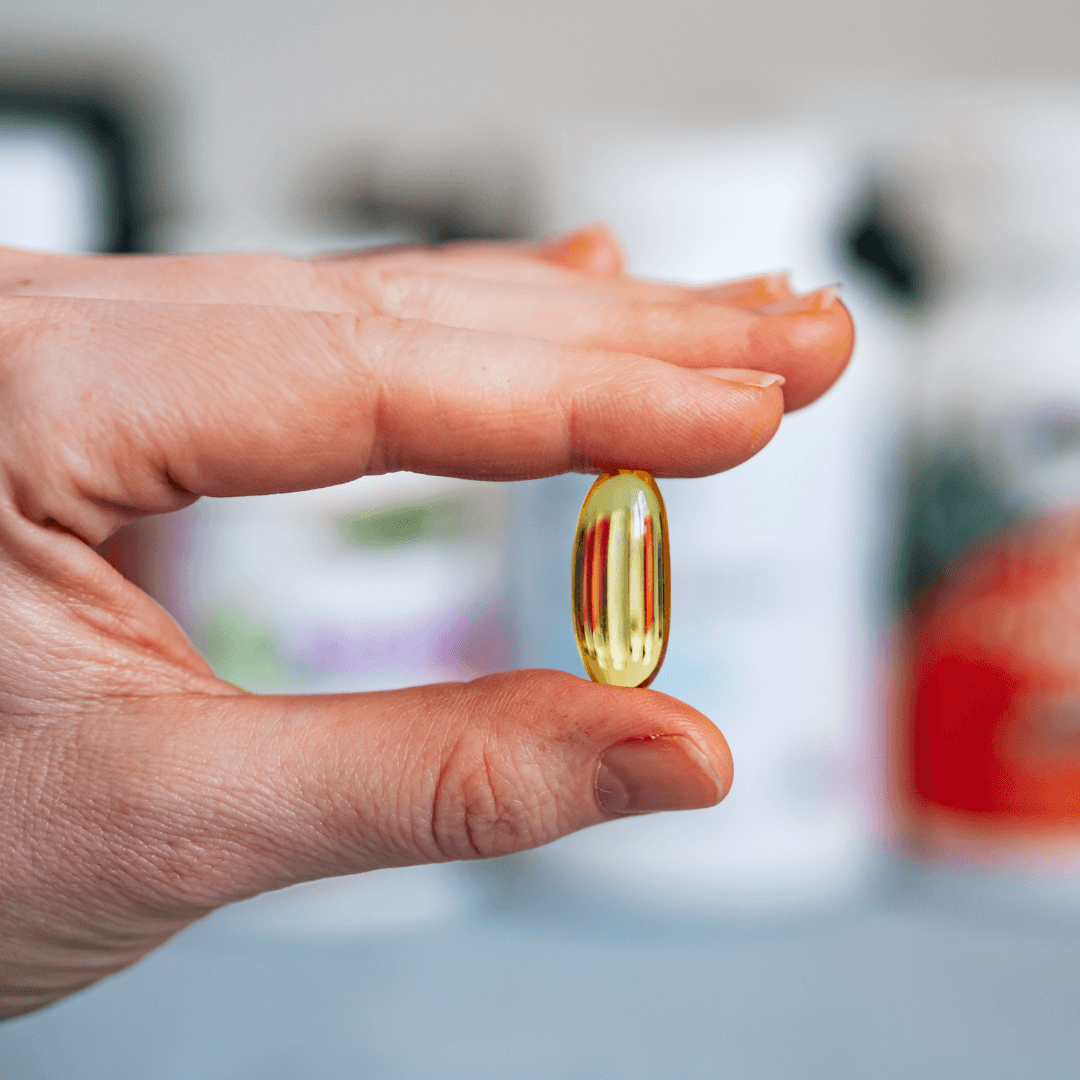
12. Vitamin D3 From Animal Sources
Vitamin D is an essential nutrient for overall health, but for vegans, the source of this vital vitamin is of paramount importance.
Some vitamin D supplements are derived from animal sources like lanolin (extracted from sheep's wool) or fish liver oil, which goes against the principles of a cruelty-free diet.
Vegans opt for plant-based sources, specifically vitamin D2 or D3 derived from lichen. Lichen, a composite organism of fungi and algae, offers a humane and sustainable source of vitamin D that perfectly aligns with vegan values.
Choosing lichen-derived vitamin D ensures ethical supplementation and addresses concerns about overfishing and animal exploitation, common pitfalls associated with animal-derived vitamin D sources.
By making this conscious choice, vegans uphold their commitment to compassion, environmental sustainability, and health-conscious living, securing their recommended daily vitamin D intake without compromising their core principles.
Vegans meticulously examine food labels and may also inquire about food preparation methods when dining out to ensure they adhere to their dietary choices.
Veganism consists of various fruits, vegetables, grains, legumes, nuts, seeds, and plant-based alternatives to create balanced, nutritious, and cruelty-free meals.
Conclusion
In conclusion, understanding what vegans cannot eat is pivotal to appreciating the depth and significance of the vegan lifestyle.
Excluding animal-derived products such as meat, dairy, eggs, honey, and gelatin is not simply a dietary preference.
It reflects a profound commitment to ethics, environmental sustainability, and personal well-being.
Vegans are conscientious consumers, avoiding the obvious animal-based foods and the hidden ingredients in many processed products.
Their decisions are influenced by their deep empathy for animals, their wish to lessen the negative effects of animal agriculture on the environment, and their pursuit of a more morally and healthily fulfilling lifestyle.
While these exclusions define what is off-limits for vegans, they simultaneously open doors to a world of plant-based alternatives that are delicious, nutritious, and cruelty-free.
A dedication to positive change marks the vegan journey — not only in individual choices but also in contributing to a more compassionate, sustainable, and harmonious world.
Understanding what vegans cannot eat is just the beginning; it's an invitation to explore the abundance of delectable and planet-friendly foods that can fill the plates and nourish the hearts of those who choose this path.
I trust you enjoyed reading the article about What Vegans Cannot Eat. Would you please stay tuned? There are more blog posts to come very shortly.
JeannetteZ
>>>Please click here to read my Vegan Travel Guides To World Destinations<<<
>>>Want To Learn How To Create Delicious, Cruelty-Free, Healthy AND 100% Vegan Meals? Try These Awesome Vegan Cooking Courses With A Free 7-DAY MEMBERSHIP<<<
Your Opinion Is Important To Me
Ideas? Thoughts? Questions? I would love to hear from you. Please leave me your questions, experiences and remarks about What Vegans Cannot Eat in the comments section below. You can also reach me by email at Jeannette@LivingTheVeganLifestyle.org.
Disclosure
This post may contain affiliate links. I earn from qualifying purchases as an Amazon Associate and other affiliate programs. Please read my full disclosure.
You might also enjoy these blog posts:
Vegan Travel Guides To World Destinations
Why You Should Go Vegan – A Guide
Best Tips For Travelling Vegans

